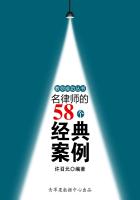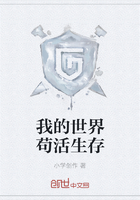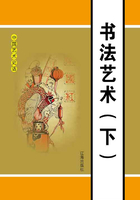THE things that men call presages, presentiments, and so forth, are, to my mind, for the most part idle nothings: sometimes it is only that probable events cast before them a natural shadow which superstitious fancy twists into a Heaven sent warning; oftener the same desire that gives conception works fulfilment, and the dreamer sees in the result of his own act and will a mysterious accomplishment independent of his effort. Yet when I observe thus calmly and with good sense on the matter to the Constable of Zenda, he shakes his head and answers, "But Rudolf Rassendyll knew from the first that he would come again to Strelsau and engage young Rupert point to point. Else why did he practise with the foils so as to be a better swordsman the second time than he was the first? Mayn't God do anything that Fritz von Tarlenheim can't understand? a pretty notion, on my life!" And he goes off grumbling.
Well, be it inspiration, or be it delusion--and the difference stands often on a hair's breadth--I am glad that Rudolf had it.
For if a man once grows rusty, it is everything short of impossible to put the fine polish on his skill again. Mr.
Rassendyll had strength, will, coolness, and, of course, courage.
None would have availed had not his eye been in perfect familiarity with its work, and his hand obeyed it as readily as the bolt slips in a well-oiled groove. As the thing stood, the lithe agility and unmatched dash of young Rupert but just missed being too much for him. He was in deadly peril when the girl Rosa ran down to bring him aid. His practised skill was able to maintain his defence. He sought to do no more, but endured Rupert's fiery attack and wily feints in an almost motionless stillness. Almost, I say; for the slight turns of wrist that seem nothing are everything, and served here to keep his skin whole and his life in him.
There was an instant--Rudolf saw it in his eyes and dwelt on it when he lightly painted the scene for me--when there dawned on Rupert of Hentzau the knowledge that he could not break down his enemy's guard. Surprise, chagrin, amusement, or something like it, seemed blended in his look. He could not make out how he was caught and checked in every effort, meeting, it seemed, a barrier of iron impregnable in rest. His quick brain grasped the lesson in an instant. If his skill were not the greater, the victory would not be his, for his endurance was the less. He was younger, and his frame was not so closely knit; pleasure had taken its tithe from him; perhaps a good cause goes for something. Even while he almost pressed Rudolf against the panel of the door, he seemed to know that his measure of success was full. But what the hand could not compass the head might contrive. In quickly conceived strategy he began to give pause in his attack, nay, he retreated a step or two. No scruples hampered his devices, no code of honor limited the means he would employ. Backing before his opponent, he seemed to Rudolf to be faint-hearted; he was baffled, but seemed despairing; he was weary, but played a more complete fatigue. Rudolf advanced, pressing and attacking, only to meet a defence as perfect as his own. They were in the middle of the room now, close by the table. Rupert, as though he had eyes in the back of his head, skirted round, avoiding it by a narrow inch. His breathing was quick and distressed, gasp tumbling over gasp, but still his eye was alert and his hand unerring. He had but a few moments' more effort left in him: it was enough if he could reach his goal and perpetrate the trick on which his mind, fertile in every base device, was set. For it was towards the mantelpiece that his retreat, seeming forced, in truth so deliberate, led him. There was the letter, there lay the revolvers. The time to think of risks was gone by; the time to boggle over what honor allowed or forbade had never come to Rupert of Hentzau. If he could not win by force and skill, he would win by guile and by treachery, to the test that he had himself invited. The revolvers lay on the mantelpiece: he meant to possess himself of one, if he could gain an instant in which to snatch it.
The device that he adopted was nicely chosen. It was too late to call a rest or ask breathing space: Mr. Rassendyll was not blind to the advantage he had won, and chivalry would have turned to folly had it allowed such indulgence. Rupert was hard by the mantelpiece now. The sweat was pouring from his face, and his breast seemed like to burst in the effort after breath; yet he had enough strength for his purpose. He must have slackened his hold on his weapon, for when Rudolf's blade next struck it, it flew from his hand, twirled out of a nerveless grasp, and slid along the floor. Rupert stood disarmed, and Rudolf motionless.
"Pick it up," said Mr. Rassendyll, never thinking there had been a trick.
"Ay, and you'll truss me while I do it."
"You young fool, don't you know me yet?" and Rudolf, lowering his blade, rested its point on the floor, while with his left hand he indicated Rupert's weapon. Yet something warned him: it may be there came a look in Rupert's eyes, perhaps of scorn for his enemy's simplicity, perhaps of pure triumph in the graceless knavery. Rudolf stood waiting.
"You swear you won't touch me while I pick it up?" asked Rupert, shrinking back a little, and thereby getting an inch or two nearer the mantelpiece.
"You have my promise: pick it up. I won't wait any longer."
"You won't kill me unarmed?" cried Rupert, in alarmed scandalized expostulation.
"No; but--"
The speech went unfinished, unless a sudden cry were its ending.
And, as he cried, Rudolf Rassendyll, dropping his sword on the ground, sprang forward. For Rupert's hand had shot out behind him and was on the butt of one of the revolvers. The whole trick flashed on Rudolf, and he sprang, flinging his long arms round Rupert. But Rupert had the revolver in his hand.















